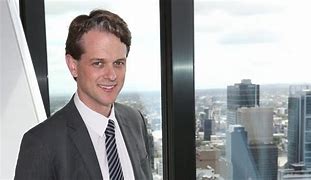Class action filed over collapse of investments firm
24 Aug 2022 - News

A class action has been filed relating to the collapse of Blue Sky Alternative Investments which was placed in receivership in 2019.
Law firm Banton Group filed proceedings in the Federal Court on 19 August.
The action claims Brisbane-based Blue Sky overstated and distorted financial reports and mislead investors.
The ASX-listed firm had a market capitalisation of more than $1 billion in 2017 but this plummeted after US short-seller Glaucus reported on “wildly exaggerated” assets held by the company in March 2018.
By May 2019, the company’s market capitalisation was just $14 million and the business was placed in voluntary receivership.
The class action seeks compensation and damages for what Banton says were hyped-up financial statements that portrayed a false, over rosy view of what was happening at the company before it imploded.
Banton Group partner Melissa Morgan said investors suffered loss by relying on information in Blue Sky’s financial reports for the 2016, 2017 and 2018 financial years.
This information materially overstated Blue Sky’s actual position, she told AAP.
“In particular, the assets of the various funds managed by Blue Sky were overstated, resulting in it improperly redognising performance fees thqt were subject to marerial risk and that under its accounting policies and the Accounting Standards ought not to have been recognised.”
In addition to Blue Sky, the class action targets former directors John Kain, Timothy Wilson, Nicholas Dignam, Michael Gordon, Philip Hennessy, Alexander McNab, Kim Morison, Robert Shand, Elaine Stead and Mark Sowerby.
They are all accused of knowing that the financial reports were inaccurate and untrue but doing nothing to correct any misleading or false statements before publishing the reports on the Australian Stock Exchange.
Ernst and Young and auditors Michael Reid and Paula McLuskie are also being sued for allegedly breaching accounting standards and their duty of care by falsely claiming the reports described Blue Sky’s “true and fair position”.
“The information in the financial reports was distorted so as to present Blue Sky as being in a more favourable financial position than it actually was,” investors say in documents filed with the court.
“This appearance caused the price at which Blue Sky’s shares traded on the ASX to be higher than the price otherwise would have been.”
Investors eligible to take part in the class action purchased shares in Blue Sky between 19 August 2016 and 20 May 2019.
 Barton Group declined to say exactly how much investors claimed they had lost due to Blue Sky’s alleged misconduct saying this information was privileged.
Barton Group declined to say exactly how much investors claimed they had lost due to Blue Sky’s alleged misconduct saying this information was privileged.
Image: Former Blue Sky director and chief executive Robert Shand.
